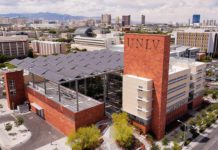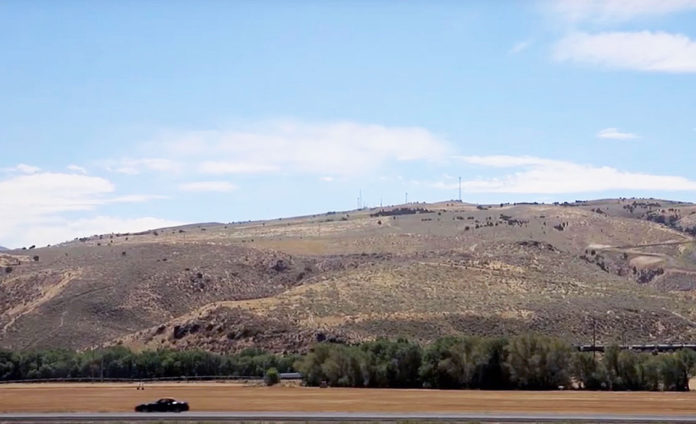FORT HALL, ID – The Idaho Federal District Court ruled for a second time that a proposed land exchange between the Bureau of Land Management (BLM) and Simplot Corporation violates federal law and the government’s trust responsibility to protect the interests of the Shoshone-Bannock Tribes in their lands ceded in an 1898 treaty agreement.
“We are pleased the federal court again recognized federal laws prohibit this illegal land exchange and we would like to thank the many attorneys that have worked for years to uphold our understanding of the 1900 Act and environmental laws,” said Shoshone-Bannock Tribal Chairman, Nathan Small.
The federal case involves the tribes’ challenge to an August 12, 2020 BLM Record of Decision that approved the land exchange, which would have resulted in the expansion of the Pocatello Simplot Don Plant phosphogypsum stacks located on the Eastern Michaud Flats NPL Superfund site. The Record of Decision was issued following publication of a Final Environmental Impact Statement (FEIS) on May 15, 2020.
The land exchange approved Simplot’s acquisition of 719 acres of federal land managed by the BLM in exchange for 667 acres of non-federal land owned by Simplot. The federal lands selected for the exchange are on Howard Mountain adjacent to the existing Simplot Don Plant and partially within the Eastern Michaud Flats NPL Superfund site. The non-federal land parcels owned by Simplot are located in the Blackrock Canyon area south of Pocatello.
In the summer of 1987, the EPA detected elevated levels of heavy metals in sediments of the unlined ponds that served both the Simplot and former FMC phosphate processing operations and in wastewater at the Simplot Pocatello Don Plant facility. In addition, arsenic, cadmium, and selenium were detected in monitoring wells in the deep confined aquifer. In all, 2,530 acres of land surrounding the phosphate facilities were found to have contamination levels of concern.
The Simplot Pocatello Don Plant was classified as part of the Eastern Michaud Flats (EMF) Superfund site located adjacent to the Fort Hall Reservation, the Portneuf River, and the Cities of Pocatello and Chubbuck. The EMF site was listed on the National Priority List (NPL) in 1990.
Simplot and the FMC Corporation phosphate ore companies are the principle responsible parties at the NPL Superfund site. These processing facilities operated from the early 1940’s until the FMC facility closed in the December of 2001. The Simplot facility is still an active operating facility.
The Simplot Don Plant and EMF site are sources of known substantial environmental contamination and pollution of the local area and reservation environment affecting important natural resources and human health. Specifically, groundwater contamination caused by the existing gypsum stacks at the Simplot Pocatello Don Plant is one of the major justifications for designating the site as a Superfund site under the Comprehensive Environmental Response, Compensation, and Liability Act (CERCLA). Public wells within three miles of the area provide drinking water to an estimated 55,000 people and are used to irrigate over 2,000 acres of crops.
The public land subject to the land exchange is entirely within the tribes’ aboriginal and ceded territory and entirely within the original Fort Hall Reservation. The challenged land exchange would have privatized public land subject to the tribes’ off-reservation treaty rights, which were also specifically reaffirmed by a 1900 Act of Congress.
In 2011, the same federal court first ruled the exchange was illegal. The BLM and Simplot then attempted a second exchange in 2020. The tribes again challenged the second exchange based on more violations of federal law. In the latest decision, the federal court agreed with the tribes and ruled the second attempt to exchange the same land continues to violate federal law.
The decision also directs that the parties next provide input to the court on what remedy the court should impose now that the land exchange has been found illegal. The court’s remedy presumptively could include unwinding the land exchange and an injunction prohibiting further expansion of Simplot’s waste activity on the public lands that remain subject to the tribes’ treaty rights.

















































